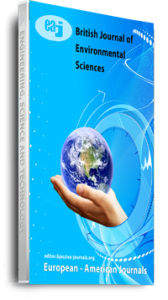Clinical Liquid Waste management has become a huge task for the authorities of health care facilities in Ghana. It is therefore necessity to ascertain the managerial strategies currently being used in managing such waste and adopt possible remedial measures to be implemented. Therefore, the study objectives were to identify the clinical liquid waste management techniques presently being used by the hospitals, generation rate and to ascertain the efficiency of current clinical liquid waste treatment practices. The study employed both quantitative approach involving structured interview and participatory observation triangulated with documentary analysis. The results found different levels of clinical liquid waste generation in sampled health care facilities. From the analysis, the study revealed that clinical liquid waste is managed using strategies such as collection, segregation, handling, transportation, treatment and disposal. However, the study results revealed that different collection, transportation and treatment methods employed by sampled hospitals affect the quality of treatment. These findings were revealed from the results obtained from the microbial analysis of Total Coliform bacteria; Feacal coliform bacteria and heterotrophic bacteria of sampled hospitals; as the results do not meet both country and WHO standards. The findings results suggest an environment problem due to the contamination of treated effluent from the sampled hospitals which are used for agricultural irrigational purposes, drinking and cooking. The study recommend; an urgent remedial measure to prevent outbreak of communicable disease through creation of awareness to educate communities downstream on the need to boil and treat their water using locally reliable methods.
Keywords: Clinical Liquid Waste Management (CLWM), Liquid Waste Generation Rate, Liquid Waste Strategy, Microbial Analysis

